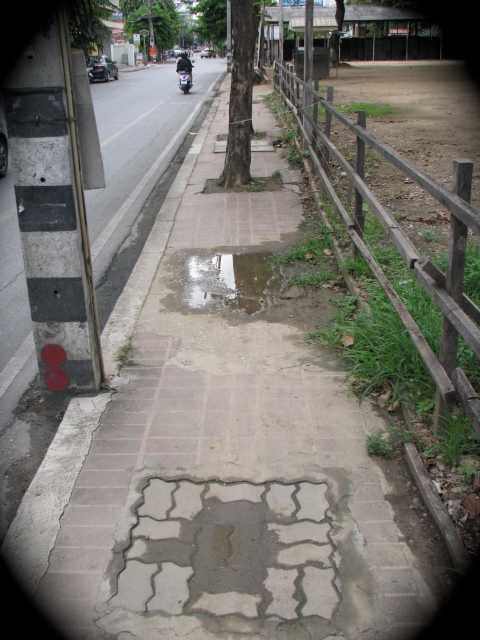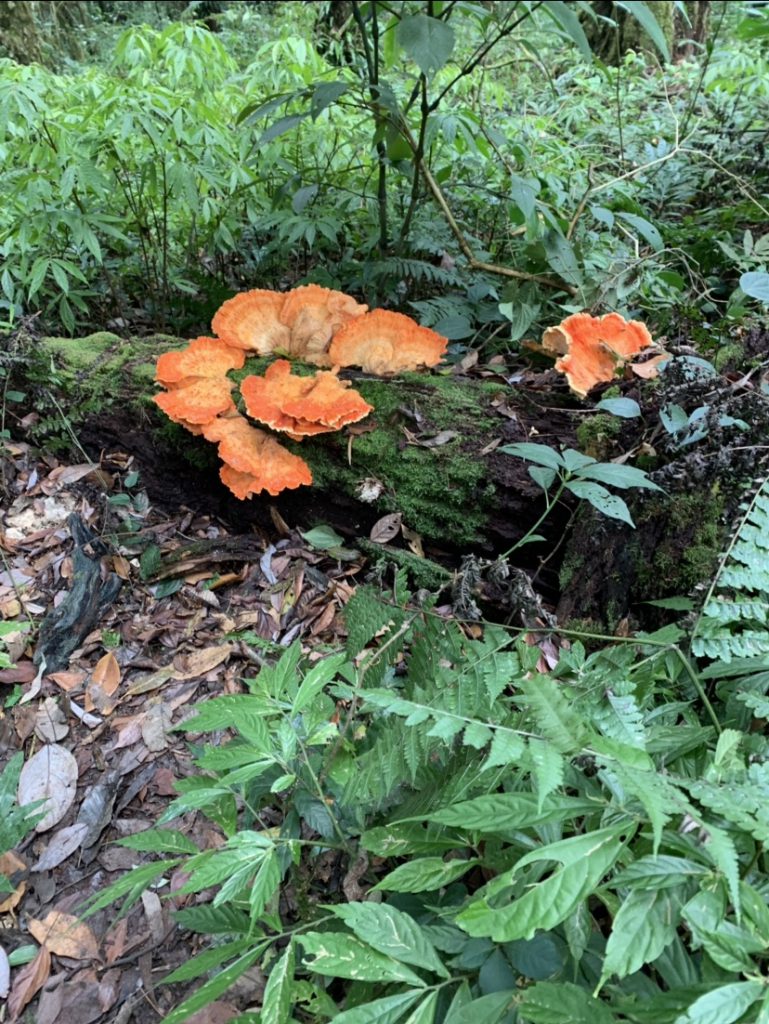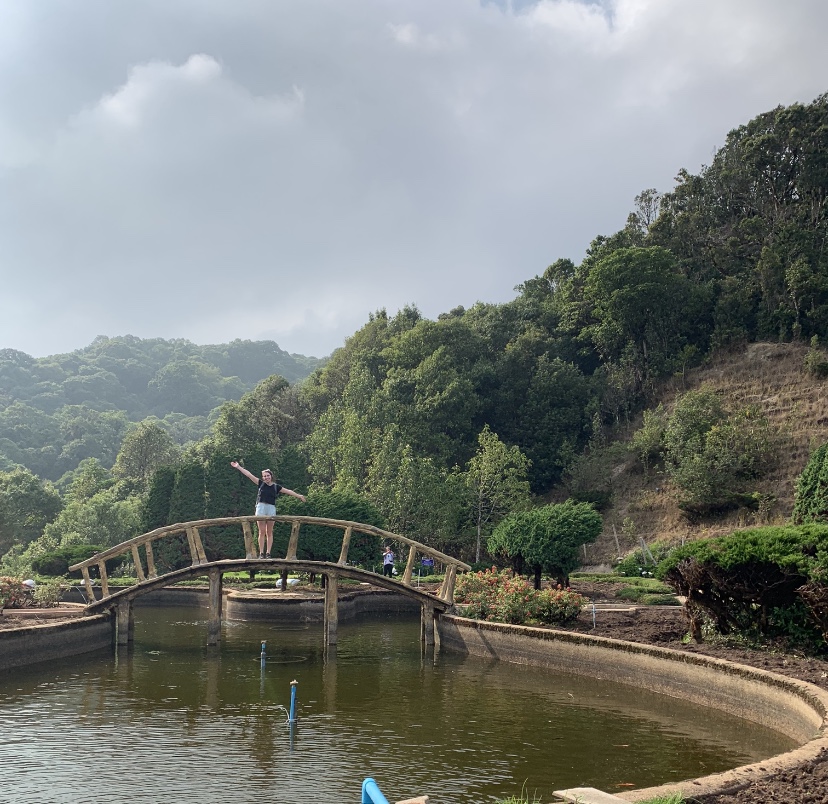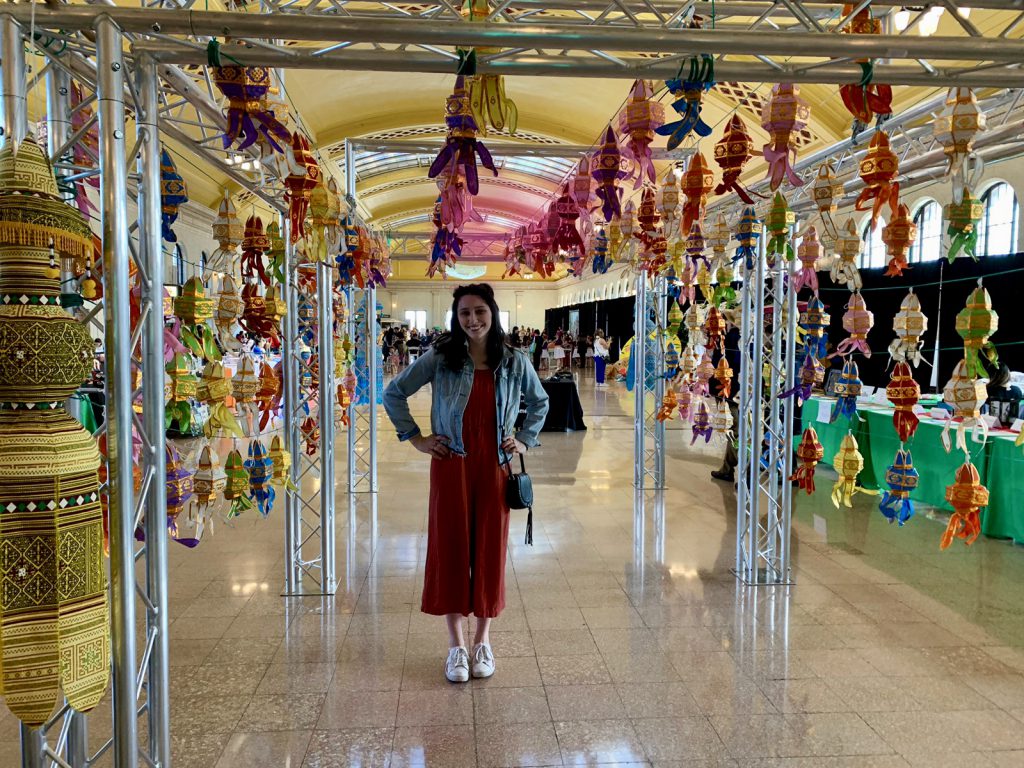The Human Ecology Model (HEM) is based on the interdependence of organisms (individuals/families) and the environmental systems with which they interact. Traveling so far from my home has been an experience that has allowed me to reflect on my life and the little things that I take for granted. In this blog post I am going to address the ways in which I observed human activity working with and against the natural environment while in Thailand. I would like to also address that this is only MY perspective, obtained from my observations of the differences between two very different cultures, the Thai culture and North American Culture.
I have observed that Thailand seems to incorporate the natural environment into some of their cities. In the states, often you see bulldozers clearing out forested areas to build new infrastructure, but particularly in Chiang Khong, I’ve seen roads that go around a mountain vs directly through and plants and trees between sidewalks.

We visited some Hill Tribes that gave me an idea of their lifestyles and the values and beliefs that they practice. Many of the Hill Tribes, such as the Huay Kom Nok Karen Village, practice a way of living that protects the natural resources and the overall sustainability of the environment. The Hill Area Community and Development Foundation (HADF) that we spoke with, talked to us about the issue associated with the economic and population growth in Thailand and how this impacts the natural environment. Similar to Thailand, the States also have issues with deforestation, soil erosion, water scarcity and biodiversity. There is a note-able concern of environmental degradation in both countries. Although, I have noticed that there is a lack of environmental effort in Thailand, I think that their efforts are focused more on the high rates of poverty and homelessness within the country.

As rapid globalization is occurring in Thailand, it is important to practice sustainable behaviors when interacting with our natural environment, because it affects our lives and many livelihoods. I believe that the many people that are in a position of privilege should practice behaviors that preserve our environment. Understanding the social injustices and the environmental injustices experienced by people in Thailand has allowed me to recognize the privileges that I have and the ways that I am responsible to contribute to the change that is needed.


